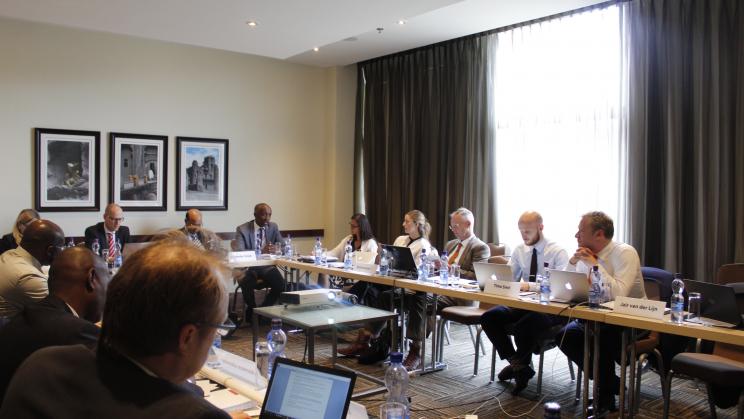
SIPRI launched the third phase of the New Geopolitics of Peace Operations–which focuses on the role of peace operations in dealing with non-traditional security challenges–with the publication of the Background Paper, ‘Multilateral peace operations and the challenges of terrorism and violent extremism’, and the organization of a dialogue meeting on the same topic.
Contemporary multilateral peace operations operate in environments in which more than before terrorism and violent extremism, organized crime, environmental degradation, piracy and irregular migration seem of key importance. The previous phase of research, which looked into the future of peace operations in Africa, found that such non-traditional security challenges–and how peace operations will deal with them–will determine the future of both United Nations (UN) and non-UN peace operations.
SIPRI continues its research on the New Geopolitics of Peace Operations, focusing on the questions: Should peace operations play a role in addressing non-traditional security challenges? If they should, what should these activities entail and which organizations are best positioned for deploying such operations? And how can peace operations best cooperate and coordinate their efforts with existing actors that deal with the respective non-traditional security challenges.
Multilateral peace operations and the challenges of terrorism and violent extremism is the first in a series of five Background Papers and dialogue meetings with key stakeholders, each on a specific non-traditional security challenge. The first meeting took place in Addis Ababa on 7–8 November, with the report outlining the current debates and setting the baseline for discussions. Based on the outcomes of the dialogue meetings, the initiative concludes with a final report aimed at moving the discussion forward.
The project was launched with support from the Finnish Ministry for Foreign Affairs, is co-sponsored by the Ministry of Foreign Affairs of Ethiopia and is implemented in continued partnership with the Friedrich-Ebert-Stiftung (FES).